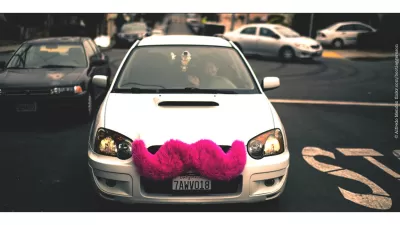Cities have transformed in profound ways, but more recent changes were the last part of a series of technology waves.

"For many years we've been promised that the marriage of technology and the city, the 'smart city,' would revolutionize urban life. But for a long time the term has essentially been a buzzword attached to different concepts over three distinct generations, accompanied by generous measures of hype and, lately, some serious questions about who's in the driver's seat," writes Aaron M. Renn.
The first generation focused on developing technology solutions to help cities manage operations for services such as water and transit. The second generation involved the promotion of open data to help cities run more smoothly. These first two generations kept cities in control of technology, but they failed to revolutionize urban areas, says Renn.
The third generation did transform cities, but the private sector deployed its technology in urban environments to provide goods and services to consumers and largely left government out of the process. Companies such as Uber, Lyft, and Airbnb often bypassed regulatory structures to change and shape cities.
"In many cases cities are struggling to catch up, sometimes not even knowing what's happening under their noses. This will be a profound challenge not just for governments, but also to our idea of the urban social contract and the division of functions between the public and private sectors," adds Renn.
FULL STORY: How Cities Lost Control of the Urban Tech Revolution

Planetizen Federal Action Tracker
A weekly monitor of how Trump’s orders and actions are impacting planners and planning in America.

Chicago’s Ghost Rails
Just beneath the surface of the modern city lie the remnants of its expansive early 20th-century streetcar system.

San Antonio and Austin are Fusing Into one Massive Megaregion
The region spanning the two central Texas cities is growing fast, posing challenges for local infrastructure and water supplies.

Since Zion's Shuttles Went Electric “The Smog is Gone”
Visitors to Zion National Park can enjoy the canyon via the nation’s first fully electric park shuttle system.

Trump Distributing DOT Safety Funds at 1/10 Rate of Biden
Funds for Safe Streets and other transportation safety and equity programs are being held up by administrative reviews and conflicts with the Trump administration’s priorities.

German Cities Subsidize Taxis for Women Amid Wave of Violence
Free or low-cost taxi rides can help women navigate cities more safely, but critics say the programs don't address the root causes of violence against women.
Urban Design for Planners 1: Software Tools
This six-course series explores essential urban design concepts using open source software and equips planners with the tools they need to participate fully in the urban design process.
Planning for Universal Design
Learn the tools for implementing Universal Design in planning regulations.
planning NEXT
Appalachian Highlands Housing Partners
Mpact (founded as Rail~Volution)
City of Camden Redevelopment Agency
City of Astoria
City of Portland
City of Laramie




























